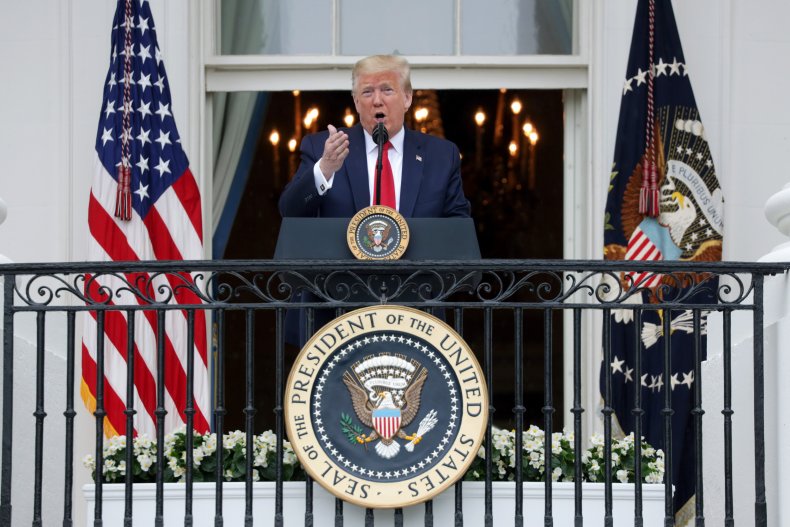After nearly nine weeks of self-imposed quarantine, the reopening of America is finally underway. The evidence, such as it is now, suggests the shutdown may have done little to stop the spread of the COVID-19 virus.
Maybe. Maybe not. It will likely be months, if not years, before we know for sure. It has become evident that the early forecasts of a new kind of “Black Death” were overstated and based on models that should have been subjected to more rigorous scrutiny than they received.
If things went as predicted, then what happened in Georgia and Florida, where the lockdown ended earlier and was far less stringent than in other states, and South Dakota, where it didn’t happen at all, should have been far worse than what New York and New Jersey experienced. Instead, it’s the opposite, suggesting that those who hit quickly on the need for “herd immunity” may have been more right than the constant chatter has acknowledged.
The most controversial part of it all—and the list of controversial acts taken by state governments is long—was the decision to ban in-person worship in churches, synagogues and mosques. The action was taken without any apparent regard for the First Amendment guarantee of freedom of worship, which the Fourteenth Amendment applied to the states, as well.
The argument, as it was made, went something like this. People who come to worship are packed tightly together in enclosed spaces and are, therefore, likely to allow the virus to spread quickly to many people if even one is infected. Therefore, churches and synagogues and mosques needed to close.
No effort was made to find reasonable accommodations. Most of the houses of worship moved services and prayer meetings and scriptural study online—which, many have argued, left few people worse for wear.
That may be true, but it’s hardly the point. Religious freedom is a core American value, which is why the Founders put into the Bill of Rights that “Congress shall make no law respecting an establishment of religion, or prohibiting the free exercise thereof.” The ban on corporate worship, by executive order yet, is a clear violation of both the spirit and letter of the law.
If that were not bad enough, some governors used the police powers available to them to enforce this decision even when, as in Kentucky, parishioners went to churches for service that would have been carried out while they remained in their cars. License plate numbers were taken down, citation threats were made and, were it not for the actions of a federal judge who knows the law means what it says and who stayed the governor’s order, it is likely those who chose continually to disobey the governor’s order would have been arrested for the alleged crime of worshipping in public.
That is now ending. On Friday, President Donald J. Trump said that getting the nation’s houses of worship open was an “essential” national priority. Shortly thereafter, the Center for Disease Control and Prevention issued guidelines to allow them to do that—and which are available here.
Among the suggestions:
- Promote healthy hygiene practices.
- Use cloth face coverings.
- Intensify cleaning, disinfection and ventilation.
- Promote social distancing.
- Take steps to minimize community sharing of worship materials and other items.
- Train all clergy and staff in the recommended safety actions.
- Check for signs and symptoms.
- Plan for when a staff member or congregant becomes sick.
- Maintain healthy operations.
- Post signs and messages.

All these are sensible and reasonable—and, if followed, should allow faith organizations to reopen and operate pretty much as they did before the pandemic started.
That, however, does not bring the discussion of how the rights of the faithful were violated. It has not been lost on anyone that these institutions were often left off the list of those considered “essential”—something that would have come as a surprise to Alexis de Tocqueville and others who have, over the years, taken the trouble to explain why America is indeed an exceptional place—while supermarkets, cell phone stores and abortion clinics often made the list.
It is probably the case, had the nation’s governors who ordered the closure of faith institutions merely requested worship leaders to comply with what was desired rather than ordering it, that most of them would have voluntarily complied. And it would not have been a tough call, especially given the New Testament instruction to render unto Caesar the things that are his. Instead, it was made into an order—and one that violated the right to freedom of worship the Constitution guarantees us all.
A day of reckoning is coming. The First Amendment’s Establishment Clause has been treated by the federal courts as being rather elastic since the 1960s. The time may be coming when the voters who consider themselves people of faith will demand similar flexibility in favor of their interests, as far as “free exercise” is concerned. And given the way Trump has reshaped the federal bench with his appointments over the last three years, they’d likely prevail.